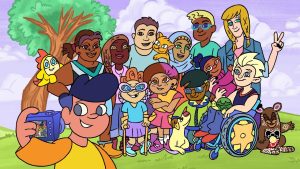 Late last week, the Government released the draft Children and Young People (Safety and Support Bill) 2024 for public consultation.
Late last week, the Government released the draft Children and Young People (Safety and Support Bill) 2024 for public consultation.
It has been a long journey to get to this point, with statewide consultations taking place in late 2022, and the review report released in March 2023.
Now that the draft Bill has been released, we’ve started to unpack what has changed and how this will impact – and attempt to benefit – the quality of care for children and young people, and ensure their fundamental rights are upheld and advanced. You can read on to hear our initial thoughts, and what the Guardian has to say.
In 2022, the Guardian made a comprehensive submission to the Children and Young People (Safety) Act 2017, with 26 recommendations for legislative reform. You can read our submission here.
Our guidance was firmly grounded in the stories, experiences and voices of children and young people who come to us for advocacy support, alongside our observations of the conduct and workings of the out-of-home care system. Following this advice, we have been eagerly anticipating the draft Bill – as an opportunity to improve the child protection and related systems for those who matter most, children and young people.
The Guardian’s role is focused on advocating and promoting the rights and best interests of children and young people in care, and it will come as no surprise that one of our key recommendations was to reinstate the best interests of the child as a primary consideration in decision-making.
The best interests principle is enshrined in the Convention on the Rights of the Child, and embedded into child protection and family law legislation in nearly all Australian jurisdictions. However, this principle has been absent from child protection legislation in South Australia since 2016.
The Guardian welcomes the proposed reintroduction of this principle in the draft bill, alongside provisions to improve children and young people’s participation rights as a key mechanism to understand and achieve their best interests. Shona told us:
”The inclusion of children and young people’s best interests as a key consideration is integral to focus the attention of both the sector and our communities on what is trying to be achieved in this legislation. Whilst I note its inclusion, I still urge drafters to not frame safety as competing against best interests.
“I propose that the best interests of a child encompasses the concept of safety, and provides a framework for considering and balancing children and young people’s rights in a holistic way – and I intend to provide this advice to government.”
The Guardian has also been a strong advocate for enshrining all elements of the Aboriginal and Torres Strait Islander Child Placement Principle in legislation – prevention, partnership, placement, participation and connection.
“It is encouraging to see that the Aboriginal and Torres Strait Islander Child Placement Principle will be strengthened within South Australia’s child protection legislation,” Shona said.
“There has been significant and sustained advocacy undertaken by Aboriginal and Torres Strait Islander communities and leaders driving this legislative reform, including strong advocacy from the Commissioner for Aboriginal Children and Young People, April Lawrie, in Holding on to Our Future.“This is a pivotal moment for government to respond to this advocacy, and it’s vital to get it right.”
Other areas where the Guardian will be paying particularly close attention include:
- The proposal to raise the threshold for mandatory reporting from ‘harm’ to ‘significant harm’
- The proposed Quality of Care Report process, to respond to harm or risk of harm to children and young people in care
- Legislative rights and supports available for young people transitioning from care into adulthood
- A proposed framework for government agencies to work together, in supporting children and young people and responding to their needs.
- New provisions aimed at recognising and responding to the support needs of carers.
Over the coming weeks, the Guardian will be examining the detail of the Bill and will make a submission to ensure that it upholds the rights of children and young people in care to the greatest extent possible.
“As we move into this next stage of reform, I will be singularly focused on advocating that any and all changes are to promote the best interests and rights of children and young people.
There are many people and organisations who are affected by the child and family support services sector, and have strong and varied interests in this reform. Fundamental changes are required to facilitate better relationships and ways of working for the adults who make decisions, care for and provide essential services that affect children and young people’s lives – and I am pleased to see government turning its mind towards how to achieve change in this area.
But, in doing so, we must never lose sight of what we’re trying to achieve, and that the child protection and out-of-home care systems are in place for the primary benefit of children and young people.
When we enact change, we must ensure that we are listening to the voices and experiences of those who will be most affected; and we must remain focused and purposeful in driving forward changes that are truly in children and young people’s best interests – their interests are paramount.”
You can find out more about the draft Children and Young People (Safety) Bill 2024 and have your say here. Readers are also encouraged to check out the Guardian’s previous submission to the review of the Children and Young People Safety Act 2017 – A rights-based approach to safety, and what we had to say after the Review report was released last year.
